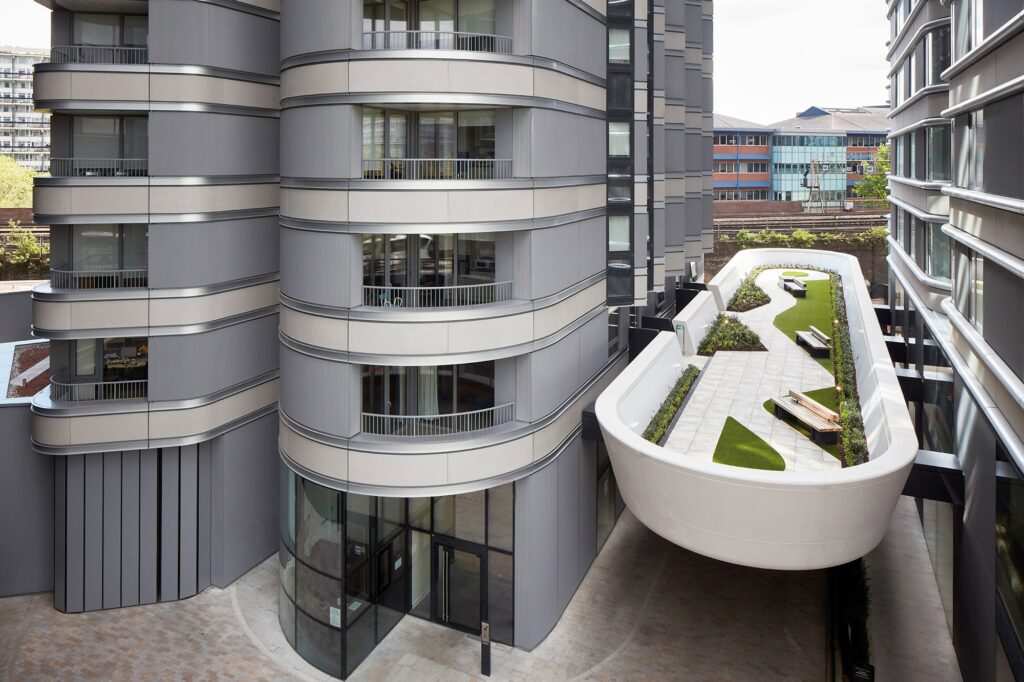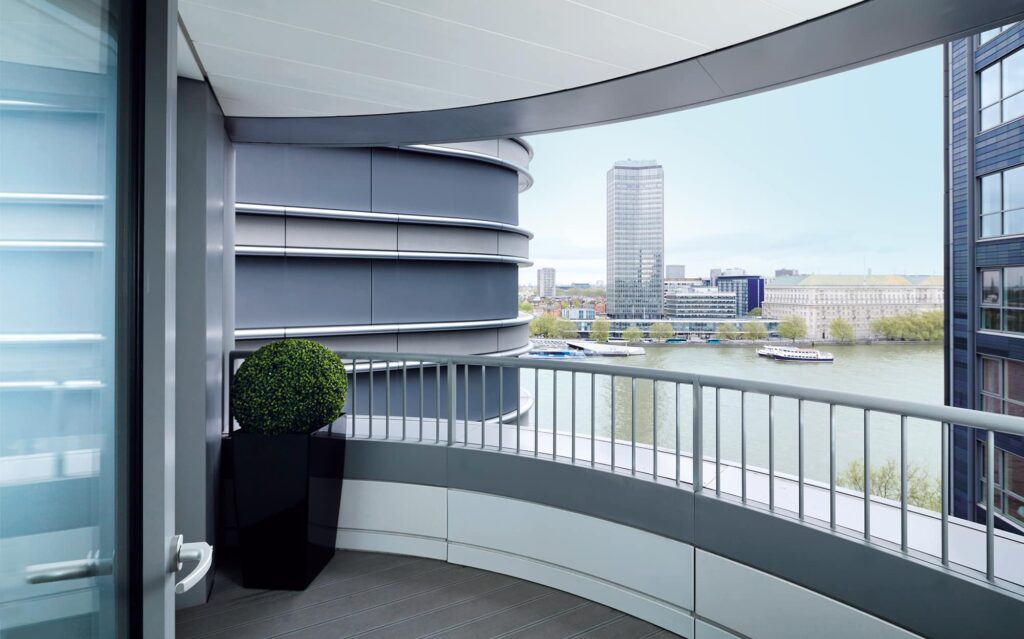Older LGBTQ+ living
By George Lee •
Only 1% of older LGBTQ+ people asked in a survey last year, said they wanted to live in the retirement choices currently offered to them. Yet 79% of the same respondents said that they would live in an LGBTQ+-specific or LGBTQ+ affirming retirement community if it existed (building safe choices 2020, from tonic, stonewall housing and opening doors London, 2020). I wanted to find out why.

Simply put, what developers are currently offering, is alienating over 1 million older LGBTQ+ people in the UK. Now is the time to understand the housing, care and support requirements of older LGBTQ+ people and look at age in a more nuanced way. The fabulous team at Tonic Housing have seen that there is a greater need for choice, and will soon be opening the UK’s first LGBTQ+ affirming retirement community, in Vauxhall, London. Georgie Lee spoke to Daniel Hibbs-Woodings, Tonic’s Community and Customer Engagement Manager about what they are doing and why.
Q. I want to start with the research that you carried out with Stonewall Housing and Opening Doors London. Were you surprised by the research?
A. We’d heard anecdotally and from some previous research, some of the things highlighted, but the Building Safe Choices 2020 report was the largest survey of its kind of older LGBTQ+ people living in London. Our research matches findings elsewhere that says that LGBTQ+ people are more likely to live alone, more likely to be single, less likely to have familial connections, and as a result have a much smaller support network to rely on. We weren’t surprised as such, but it was really important to get the data collected and hear from so many different voices in the community.
Q. Was it the awareness of isolation in the LGBTQ+ community that inspired Tonic?
A. Yes, that’s definitely one of the key inspirations. We recognised right from the start that loneliness and isolation, while affecting older people generally, seems to severely affect our community. The lack of structures, and in particular familial structures make it particularly difficult. You can see that it is so much worse for the older LGBTQ+ community due to the massive prejudice that existed 30-40 years ago and beyond in the UK. We have seen a radical shift towards LGBTQ+ rights in the past 20 years but the loneliness and isolation you see in the older generation right now can be directly related to how hostile the world was in decades past.
Q. What do you think is unique to the older LGBTQ+ community?
A. We recognise that there is a great deal of anxiety within older LGBTQ+ people when accessing any kind of public service, including the health service. Around 50 years ago, electric shock treatment (aversion therapy) was still used to try and ‘cure’ people of homosexuality. Those memories still echo strongly for many older gay men particularly, as well as criminalisation of homosexuality – many people we engage with have vivid memories of those times and it can be incredibly traumatic for many. It is part of our commitment to health and well-being to make people aware that times have changed, to work on an individual basis with our residents to reassure them that change has happened and for the better, and to make sure that we’re there to facilitate, guide and support.
Q. You talk about designing for people’s needs and values, how have you done this at Tonic?
A. The vast majority of everybody on the board at Tonic is LGBTQ+. We also have a large and strong Community Panel, and this is also made up of older LGBTQ+ people. We are all about doing things with people, never on behalf of them. We have actively involved people all the way through the process, to make sure what we eventually provide is reflective of what the community wants.
Our Community Panel, for example, has been involved in choosing the building that we’re moving into at Bankhouse, which is a purpose-built retirement community building. We’re proud to say that we’re community-led, and that we’ve been co-designing how Tonic will work with our community. We want to show the world what older LGBTQ+ community living looks like and change perceptions on ageing being a sad and lonely experience.
At Tonic, it is all about being community-led. We’re not just selling properties and waving goodbye once residents get their keys. Moving in is just the beginning. High-quality, safe, accessible housing is essential for us, but so is creating a space where older LGBTQ+ people can be their authentic selves, without fear or feeling the need to hide it – Daniel Hibbs-Woodings, Tonic Housing
Q. The community seems to be the key part of the Tonic story. Community comes first, housing later. You have flipped the conventional developer model on its head, who normally only do a cursory nod to community engagement . Was this a conscious decision?
A. At Tonic, it is all about being community-led. We’re not just selling properties and waving goodbye once residents get their keys. Moving in is just the beginning. High-quality, safe, accessible housing is essential for us, but so is creating a space where older LGBTQ+ people can be their authentic selves, without fear or feeling the need to hide it. Rather than just being “LGBTQ+ friendly” our services will be actively LGBTQ+ affirming of the lives, histories, needs and desires of LGBTQ+ people. This does not imply exclusion of those who do not identify as LGBTQ+ but actively values those who respect and celebrate LGBTQ+ people.
Whether it’s a resident’s event, like a book club, film night or drag show, or helping someone to access a local service, we’ll be on hand to make sure that they don’t have to hide any part of themselves, and be there to facilitate any suggestions they may have for events, services or just a cup of tea and a gab!
One of key things to recognise about our community is that we like to hang out together. For decades we’ve fought in this common struggle, and for many older LGBTQ+ people that I speak to, the vast majority of them met through protests or community events. As society progresses, and younger members of our community move to more online forms of protest or community engagement, we’ve seen there has been less opportunities for these people to come together. We want to change that too, and ensure that we’re providing spaces at Tonic and in the local community for our residents, future residents and supporters to connect, make friends and learn from one another.
Q. Is Tonic exclusively for older LGBTQ+ people?
A. No, and this wasn’t what our community wanted or needed either. As the finding of the Building Safe Choices research showed, the vast majority didn’t want a space that’s LGBTQ+ exclusive. As mentioned earlier, we’re LGBTQ+ affirming, which means we’re affirming of the lives, histories and needs of LGBTQ+ people – we do not exclude anyone who does not identify as LGBTQ+, but actively value those who respect and celebrate LGBTQ+ people!
Q. Are there any common needs across all ages of the LGBTQ+ community?
A. The need and desire for safety is vital for the LGBTQ+ community. No matter who you talk to, at any age, fear is a very big issue, and often the reason so many of us get involved in community-led projects. This can stem from systemic discrimination, societal views or rejection from friends and family to name just a few. We work closely with a lot of other LGBTQ+ organisations who do some amazing work in addressing these needs, like akt, the youth homelessness charity, The Outside Project, the UK’s first LGBTQ+ crisis shelter and also Opening Doors London and Stonewall Housing who we did our Building Safe Choices research with.
Q. I wanted to ask you about ageism within the LGBTQ+ community.
A. Ageism is a huge problem in the UK full stop. But I do think ageism within the LGBTQ+ community is a key factor in why older LGBTQ+ people are isolated. Many of the community spaces which exist are not only inaccessible physically, but socially they can be quite hostile to older LGBTQ+ people. I am 29 and I have experienced ageism within the community! At Tonic, we recognise that we cannot change London’s landscape overnight to make it better for older people, but we are going to try and make changes where we can, by working with other organisations and local councils/public services for example. Creating a community that brings people who feel they are isolated together in a safe space is a really good start in moving things forward.
Q. What is Tonic’s ambition?
A. The long-term dream is an amazing vibrant LGBTQ+ community-led housing organisation that can enable many different local and diverse projects to achieve their vision sooner and with less barriers. We want to show the world what older LGBTQ+ community living looks like and change perceptions on ageing being a sad and lonely experience.
Our first scheme, Tonic@Bankhouse has 19 properties, which we know is a small step to lead to much bigger things! With over 400 people on our register of interest list, this is just the start!
We are currently applying to become a Registered Provider of Social Housing, so that we can provide affordable rented homes in future as well as other tenures. If we are successful Tonic will become the first LGBTQ+ Registered Housing Provider.

More Information
Tonic is a community-led not for profit organisation. They are focused on creating vibrant and inclusive urban LGBTQ+ affirming retirement communities where people can share common experiences, find mutual support and enjoy their later life. Tonic was established in 2014 to address the issues of loneliness and isolation of older LGBTQ+ people and the need for specific housing and support provision as there is currently none in the UK. Tonic@Bankhouse, Tonic’s first scheme will be opening to it’s first residents in summer 2021.
You can find out more about Tonic Housing at:
All images by Tonic Housing.
We want to hear from you
This story has been categorised as:
News